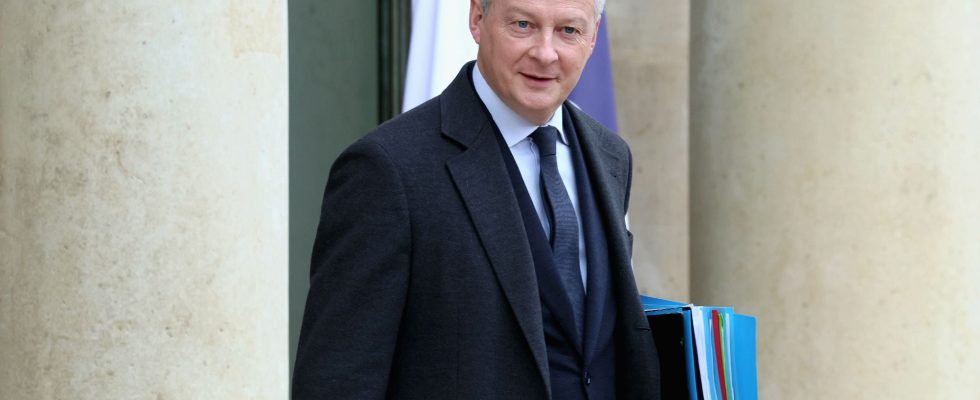In a difficult economic context, Bruno Le Maire announced a savings plan of 10 billion euros “exclusively on the state budget”, without affecting communities or social benefits. While reducing the deficit is necessary, the announced plan risks repeating past mistakes and exacerbating the problems it seeks to solve.
Two weeks before the announcements of budgetary savings, the government had just released 400 million for farmers and 3 billion euros in aid for Ukraine. Earlier in the year, the vocational high school, on strike, received 1 billion euros, the hospital 8 billion in the aftermath of Covid, while the yellow vest crisis resulted in a check for 15 billion. Each time, however, the testimonies of those mainly concerned show that these expenses have changed nothing in their reality. The public hospital is still on the brink of collapse, the middle classes continue to become impoverished, the vocational high school has only been entitled to symbolic measures. Under Emmanuel Macron, public spending seems to have become a crisis management lever to temporarily calm social demands, without having to deal with the underlying problems. Plasters costing several hundred billion euros.
Paradoxically, the protests that the government seeks to extinguish with billions often relate to the feeling of abandonment linked to the withdrawal of the State and the deterioration of public services. Hospital beds and maternity wards continue to close, teacher shortages are increasing, and the conditions for ensuring the work of law enforcement are no longer met. Citizens and businesses alike see less and less of the return on the taxes they pay. Even the “French economic decline”, invoked by the minister to justify the need for his plan, is largely linked to years of underinvestment in research, training and innovation which have undermined our competitiveness. Is it really the time to further reduce the budgets of ministries and state operators? At the risk of aggravating with one hand the problems that we are spending billions to extinguish with the other?
From 4.6 to 5.6 million civil servants in twenty years
Contrary to what Bruno Le Maire declares, taking the State as the sole target is not the “choice of courage” but on the contrary the easy one. “Removing civil servants” is a slogan which has so far only led to increased spending while reducing the effectiveness of public power. Bruno Le Maire should know this, since he was already in office for the previous experiments which failed. Since we sought to eliminate them, the number of civil servants has increased from 4.6 to 5.6 million in twenty years, mainly at the community level. Because, if the State is hypertrophied in places, experience shows that budgetary cut plans “in all ministries” do not attack the portions where savings are necessary, but where they are easiest to achieve. do politically.
Already in 2007, Nicolas Sarkozy had mainly attacked technical or little-known areas – engineers and state technicians, teacher training – and those which cannot contest – such as diplomacy or the army, the Grande Muette being constrained to a duty of reserve. What Bruno Le Maire seems to be pursuing, in particular by planning to reduce the budgets of our economic diplomacy. Eliminating this type of position is an illusion: either the needs are no longer met, worsening our dropout in different areas; or they are outsourced to private actors, which generally costs more. All these plans achieve is to further accelerate the loss of attractiveness of a civil service which is already struggling to recruit. Since 2007, we have always tried to do the same thing while expecting a different result. Perhaps it would be healthy to finally take stock of past failures before continuing down the same path?
Break the vicious circle
The “proportional contribution of each ministry” to this savings effort above all reflects the absence of in-depth analysis. However, many issues deserve more attention to combat the deficit within the state. What conclusions can be drawn from non-productive expenditure aimed at purchasing social peace and what investment expenditure in education, health and innovation have they crowded out? We could find there a first explanation of the French economic decline, which seems to surprise the minister. What share of public resources is diverted from real activity to the intermediate administration, administrative duplication and external service providers, who feed on these plans?
When we see that National Education can spend 400 million euros to pay Capgemini for software, Sirhen, which will never see the light of day, while it is unable to increase the number of teachers, we can wonder. With equivalent budgets, are we really mobilizing state agents for essential missions? Teachers, nurses and police officers complain about tasks imposed by the administration that are increasingly disconnected from the heart of their profession. A police officer is only able to spend a tiny part of his time on patrol, while caregivers denounce hours spent filling out forms for a stifling bureaucracy.
Bruno Le Maire made a lot of comparison with other countries. At a time when the various world powers are rearming their States rather than stripping them, providing an answer to these questions is a necessity. We would undoubtedly discover that it is possible to permanently reduce the French public deficit by more than 10 billion euros, without worsening the dismantling of the State, the feeling of abandonment of a growing part of the population. and legitimate questions about the destination of our taxes.
* Essayist, Maroun Eddé recently published “The Destruction of the State” (Books).
.
